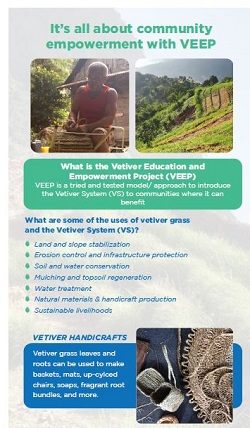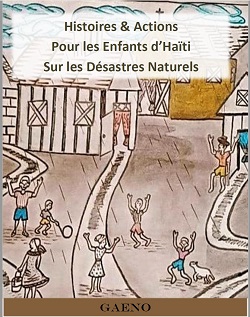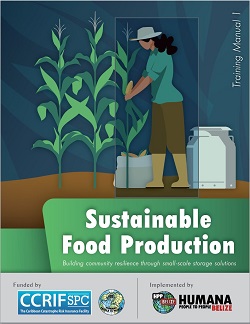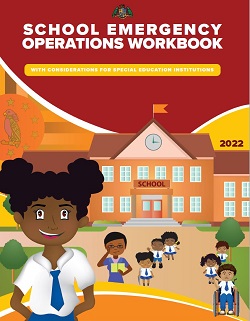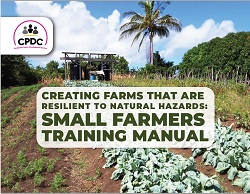Project Proposal
There are five categories into which CCRIF Small Grants projects are divided. These are:
- Disaster risk management (DRM)
- Engineering related to DRM or climate change adaptation
- Climate change adaptation
- Training and other capacity building initiatives to be implemented through seminars, workshops, community consultations, and expert group meetings among others
- Environmental management initiatives that will directly impact on reducing community vulnerability (e.g. watershed management projects in degraded areas that will contribute to enhancing resilience in nearby communities)
Applicants themselves shall decide which category best fits the content of their project.
Each project proponent will be required to complete and upload the following documents in the online platform:
- Application form - Word | PDF
- Project Proposal Document (no longer than 10 pages) – this should document the intention of the organisation, the project activities that it intends to implement, the expected outputs and deliverables and the expected outcomes of the project. It should also include a description of the community or persons that will benefit from the implementation of the project. The letter should name any partners and describe their roles in the project. If the proposed project is part of a larger project, this must be declared and a description of the links between the larger project and the proposed project must be described. Where government agencies or other entities are providing in-kind assistance, the proposal should include a statement of support from the contributing entity.
- Information on how the outcomes of the project are related to the CCRIF mandate and how they would contribute to reducing existing and future vulnerabilities in communities must be clear. Assumptions and risks to timely project commencement, implementation or completion should be described. A description of related projects also implemented and work with other development partners should also be included.
- Identification document – this document must be up to date and must confirm the legal status of the organisation at the date of proposal submission.
- Budget – the CCRIF Small Grants Programme can fund an entire budget for a project, once it falls within the range of US$5,000 to US$25,000. However, CCRIF prefers to see a contribution towards the total project costs from the organisation and/or the beneficiary community/ies. The budget should include non-financial contributions such as volunteer work to be provided by community groups as well as in-kind contributions of the proposing organisation (e.g. use of own premises, equipment and cars to undertake the work). CCRIF is not averse to organisations receiving resources from another entity or other partners to fund components of proposed projects. All sources of funding – including funds from other entities - must be declared and explained in the budget description.The budget is expected to be simple and realistic and be quoted in United States dollars (USD). When preparing the budget, proponents should adhere to the following list of eligible cost categories (those costs that will be covered by CCRIF). Eligible costs include:
- Printing and publishing/delivery of printed/published materials
- Technical services directly related to project outputs o Tangible and intangible assets (goods or services related to the project) - e.g. purchase of trees for watershed rehabilitation; hiring community animators to be used in training workshops etc.
- Equipment and materials related specifically to project outputs (e.g. groins that may be used to control the effects of wave action that could result in beach erosion and instability; materials associated with building an artificial reef)
The following costs cannot be covered:
- Capital investments such as vehicles and computer equipment
- Applicants’ own indirect costs (e.g. utilities, telephone bills, internet costs)
- Internal costs (rent of one’s own premises, fees for one’s own work)
- Salaries or financial remuneration of employees
Proposed Timelines - a proposed project timeline and calendar must be included when preparing the project proposal and it must identify distinct project phases from the proposed start date to the implementation and project reporting and conclusion. Once a project is approved, this timeline becomes a crucial tool to CCRIF and the grantee and will allow the grantee to keep CCRIF up-to-date on all project activities being executed. Project implementation should not exceed 18 months.
Project Selection
The evaluation period for proposals can last up to 60 working days (approximately 12 weeks) and proponents should take this into account when writing and submitting the proposal, as no project can be scheduled to start before its prospective approval.
Each project will be carefully reviewed on its own by the CCRIF TA Committee as well as in the context of other projects within a given timeframe (especially among projects with similar topics). Preference will be given to those projects which reduce vulnerabilities to hazards at the local level, provide an opportunity for replicability to other communities, present innovative ideas for community disaster risk management, illustrate a clear role for community members and last but not least will contribute to achieving the vision of CCRIF.
The following are the selection criteria:
Announcement of Results
Project proponents will be informed by email of the results of their application. Additionally, a list of approved projects will be published on the CCRIF website every 6 months.
Contractual Terms
The contract between the grantee and CCRIF will be concluded once the grantee has fulfilled the following conditions: (1) allocating a bank account which will serve the purposes of the project (such account can be an existing bank account used by the grantee, or a new separate bank account); and (2) acceptance of the contract draft by the grantee and subsequent signing of the contract.
Project Implementation
Once approved, the grantee shall remain in contact with CCRIF through the designated service provider as will be stated in the contract. All contractual changes (i.e., extending timelines, changes of project partners, etc.) must be requested in writing—i.e., on letterhead paper with signature and should be sent by email to the designated service provider.
All events implemented and all documents produced as well as all public relations undertaken in the execution of the project must make reference to CCRIF and where applicable (e.g. printed materials, documents, signage etc.) include the CCRIF logo.
A calendar of events included within the CCRIF online platform is an on-line tool for communicating progress of a project between the grantee and CCRIF. It is necessary to keep all events up-to-date since the calendar serves the purpose of project evaluation and extends the public relations of an event as the entries get published on CCRIF’s website. As such, dates and locations for each event must be confirmed in the on-line calendar preferably 10 working days before the event takes place but 3 working days prior to the event at the latest.
Grantees are also obliged to prepare monthly/quarterly progress reports (the type of report will be stipulated in the contract and will be based on project duration). A final report on the project that also includes a detailed expenditure report is a requirement.
Grantees must also prepare at least one press release per project output in collaboration with CCRIF. Press releases will be written in English, submitted in the on-line system, and disseminated to relevant media (in consultation with the CCRIF Communications Manager). Press releases serve the facility for the purposes of project evaluation and enable media and public oversight of the projects.
- Topic and content of the project, its originality and alignment with the mandate of CCRIF
- Quality, relevance and contribution of project partners
- Transparency and accuracy of the budget
- Development of local communities with an emphasis on reducing existing and future vulnerabilities of local communities
- Potential for replicability and the multiplicative effect across communities in the region
- Proposed media coverage and public relations, networking effect
- Continuity and sustainability of the project
- Experience of proponent with similar types of project and experience and a track record of working in local communities
- Involvement of local community members in project implementation


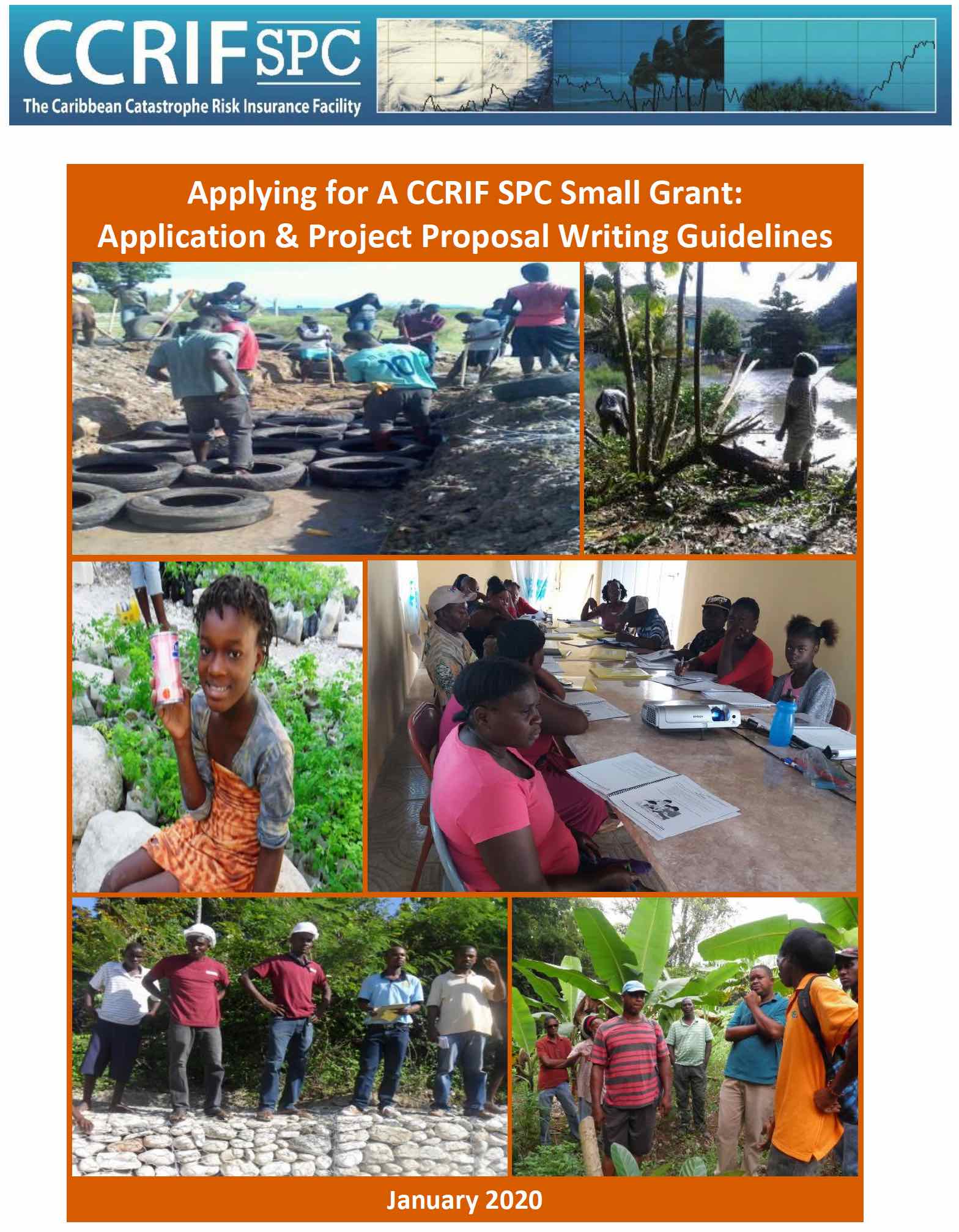



 Small Grants Proposal Submission
Small Grants Proposal Submission 